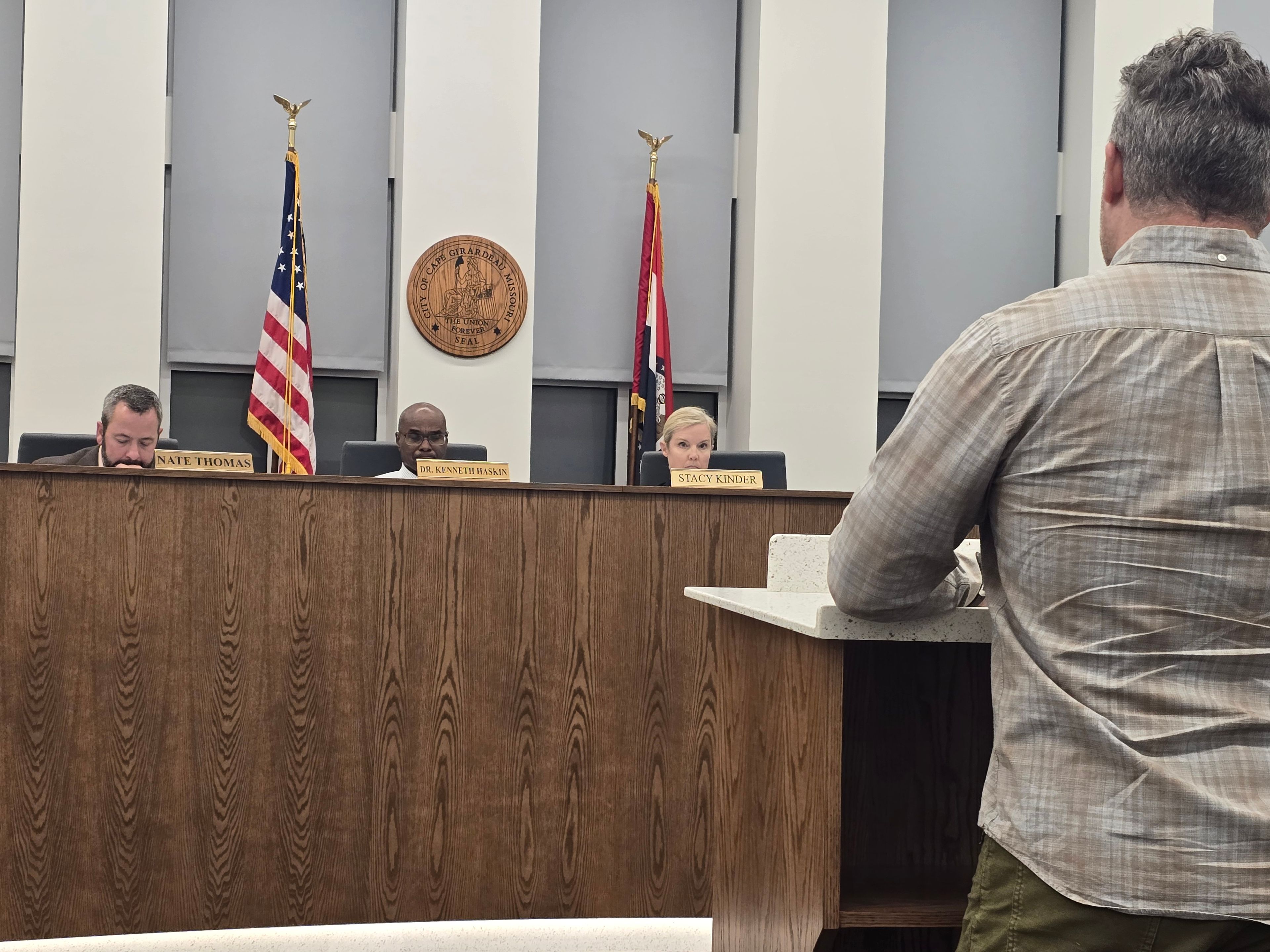MISSOURI INITIATES REFORMS TO WELFARE AHEAD OF CONGRESS
JEFFERSON CITY -- Missouri's Department of Social Services has implemented several welfare reforms even before Congress agrees to a series of welfare reforms, given a major boost by House Speaker Newt Gingrich's Contract with America. Such welfare correctives as mandatory work for certain recipients of Aid to Families with Dependent Children have been in force in state for several months, long enough to prove they will work and accomplish the bipartisan goal of reducing recipients' dependence on monthly government checks.. ...
JEFFERSON CITY -- Missouri's Department of Social Services has implemented several welfare reforms even before Congress agrees to a series of welfare reforms, given a major boost by House Speaker Newt Gingrich's Contract with America.
Such welfare correctives as mandatory work for certain recipients of Aid to Families with Dependent Children have been in force in state for several months, long enough to prove they will work and accomplish the bipartisan goal of reducing recipients' dependence on monthly government checks.
Five DSS programs are in place, helping welfare families achieve a degree of self-sufficiency they have lacked since enrolling in one of several federal-state assistance programs. Missouri's principal self-sufficiency project is known as the FUTURES program, which now has enrolled 8,737 welfare recipients and involved in one of its several activities.
One FUTURES program that has recently received public notice is a project involving Tyson Foods Inc., which agrees to employ able-bodied recipients receiving AFDC payments and food stamps. Participants in this program are referred weekly to the Tyson Foods Corp. plant at Sedalia, which has thus far provided full-time jobs, paying $5.50 an hour, to some 30 welfare recipients. To date, 50 percent of those who have been referred have kept their interview appointments and 50 percent of these have been employed. AFDC and food stamp beneficiaries who fail to participate or who drop out will see their benefits decline.
Other county DSS offices are in the process of completing similar work agreements with industries in their area, and officials say still other contracts with companies seeking employees will be negotiated in the weeks ahead. The end result, DSS officials believe, will be the employment of hundreds of former aid recipients.
Of the 8,737 recipients in FUTURES, 2,708, or 31 percent, are doing volunteer work or working part-time in addition to attending a training activity.
Another state program, called Wage Supplementation, provides a way for AFDC recipients to obtain work experience and get paid. Missouri currently offers two wage supplementation programs. One, called 21st Century, is being tested in the Kansas City area. In this program, the employee's AFDC grant and food stamps are diverted to the employer for up to four years. Instead of welfare benefits, the employee receives a paycheck. This program required a federal waiver from the U.S. Department of Health and Human Services and is currently limited to 300 in Kansas City.
The second wage supplementation program is offered statewide. The rules of this plan call for an employee's AFDC grant to be diverted to the employer for up to nine months in exchange for a paycheck. In both wage supplementation programs, supportive services, such as child care assistance, are offered the employee. Industries in Warren and Laclede counties have signed contracts with the DSS to participate.
Still another program is supplying 20 percent of the employees for the state's new contracted MC-PLUS managed health care system. These employees will all be graduates of the FUTURES program and will be used by the health-care contractor to enroll other AFDC recipients in the state's new health-care plan.
Another project is an initiative to establish a Community Work Experience Program, providing full-time positions in the nursing home industry. This is in effect in four areas. Provisions call for job applicants to lose a portion of their benefits if they refuse employment from the nursing home making a job offer. Nursing homes in St. Louis, Kansas City, Springfield and in Northwest Missouri are taking part.
A fifth program involves two-parent families receiving public assistance. It requires a parent work to receive benefits, which can be reduced for noncompliance. Since the inception of this program in October 1993, the caseload for two-parent families receiving public assistance has declined from 4,013 to 1,397 -- a 56 percent reduction.
There are 849 unemployed parents in this program whose grants have been reduced because of noncompliance.
There are about 86,000 families receiving welfare aid at a cost in excess of $22 million a month, excluding food stamps and Medicaid health insurance benefits.
Connect with the Southeast Missourian Newsroom:
For corrections to this story or other insights for the editor, click here. To submit a letter to the editor, click here. To learn about the Southeast Missourian’s AI Policy, click here.







